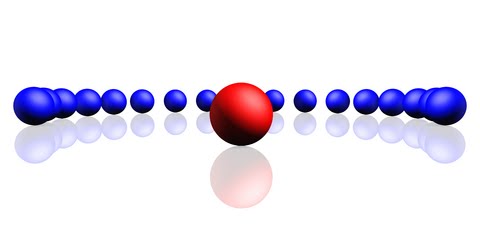How did we get to the point where rage is now accepted as a common, even positive, emotion? How did we come to be talking about voter rage, public rage, rage against this or that, as though it were constructive and likely to result in something good? Who thought it was a good idea for rage to become "all the rage"? And how did we ever buy that?
Frankly, I think this is a strange and disturbing twist of human understanding. Rage is a downward spiral of thought and emotion that cannot lead to healthy, wise, or positive outcomes. It cannot because people who are enraged are not in their right minds as long as they remain enraged. They are alienated from others who do not see things exactly as they do, and wrapped up in the swirling ribbons of their own most frightening or upsetting thoughts. On top of that, they are creating an internal biochemical stew that will, if unrelieved, lead to chronic health problems and a shortened life.
Rage has no relationship to circumstances, although the more people feel rage, the more obvious it seems to them that their rage is being caused by something outside themselves. That's the danger of unrelieved and misunderstood rage, and the reason enraged people lash out -- it makes sense to them in an enraged emotional state to try to get relief from destroying the thing that appears to be making them angry, appears to be obstructing their view of life, appears to be a threat to their understanding of the way it is and the way it should be.
I used to share a chart (see below) with some of my classes to show how thinking we do not recognize as our own thinking looks like "reality."
Once we find ourselves in the "black box," it appears to us that the thoughts we hold are quite obviously the way it is, and we are quite obviously right, and anyone who sees things differently is somehow defective. This is a subtle point. Wars are fought; murders are committed; drastic decisions are made on behalf of the ideas and belief systems we would die for before considering changing our minds, but still, people taking an unremitting stand for those ideas would acknowledge that there are others in the world equally committed to totally different ideas. Despite the stakes, there is an understanding that we -- individually and collectively -- have created systems of thoughts and beliefs that are so important to us we would do whatever we could to preserve and protect them. But we still know that others feel equally strongly about their beliefs; we understand that we live in a world of separate realities. So we take our stands with passion, determination and conviction, but without rage. We remain capable of calm decision-making and we remain able to consider consequences, unintended or not. We remain able to be touched by other human beings, by the common human experience of commitment to our particular ways of thinking.
Rage lives in the black box, where we find all our psychological pain because, when we are caught up in that thinking, we have no psychological flexibility, no capacity to stand back from our thinking and reflect on it, no ability to recognize the passion or enthusiasm of others as their commitment to their thought-created realities. Rage is not only a deeply unhealthy and harmful human feeling state, as it spreads and self-reinforces, it prohibits our natural human ability to transcend our own thinking and find solutions and answers that are as yet unknown.
The antidote to rage is understanding it for what it is, a frightening but temporary state of mind. We don't need to manage anger; we need to eliminate it because it is an unhealthy misunderstanding of non-constructive thought. We need to lose our individual tolerance for spiraling into anger and rage because we pay a huge psychological, biological and spiritual price for giving away our peace of mind. We need to lose our communal tolerance (even admiration!) for mass rage because it leads to conflict and gridlock. People operating from the stance of rage cannot listen for solutions or engage in civil discourse to evolve opposing ideas into something better, something that leads to agreement and resolution.
Rage is something we create from our own bad feelings and insecurity. A person at peace and feeling secure does not, virtually cannot, create rage. We could eliminate rage from our lives by caring about how we feel, and losing our willingness to feel increasingly negative, insecure, angry. Those feelings are warning signs that our thinking is taking us down; those are warning signs to relax our minds, leave our thinking alone for a bit, regain our bearings.
In all of our lives, there is a grandmother, or an aunt, or a friend, who said, "Take a deep breath." "Sleep on it." "Don't do anything until you calm down." They were offering the antidote to rage.



You are right, absolutely. And the question we all want to ask is: How can we live in that state of peace of mind most of the time?
ReplyDeleteThat state of peace of mind is the "default setting" for all of us, but for our commitment to our own non-constructive thinking. Our minds, left alone, keep us awake to the present moment, operating from wisdom and common sense, using our stored knowledge appropriately. So living in that state of mind is quite natural as people understand how our thinking works to create experience and start to use negative or upsetting feelings as warning signals to leave their current thinking alone and allow their minds to quiet down.
ReplyDelete